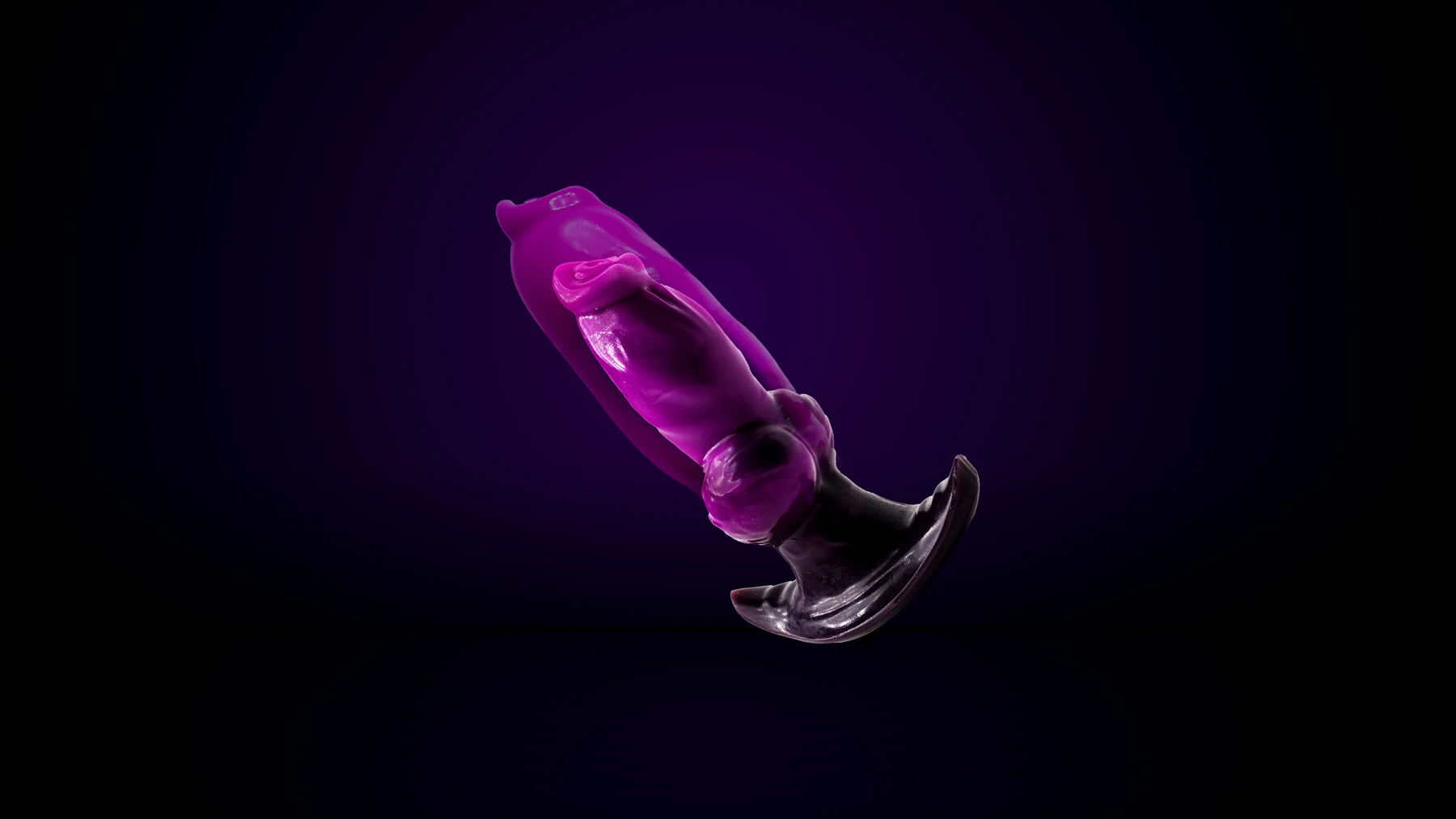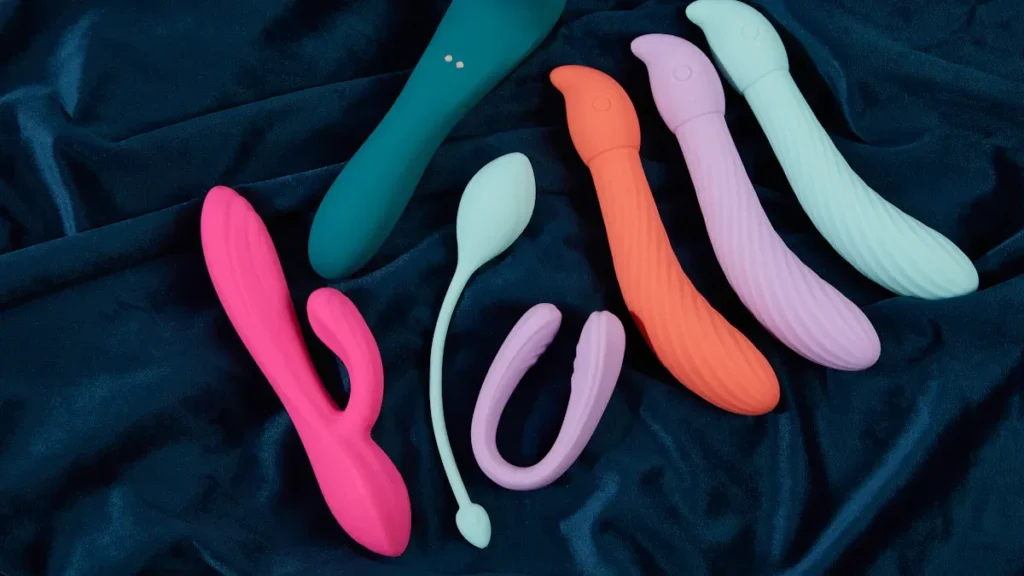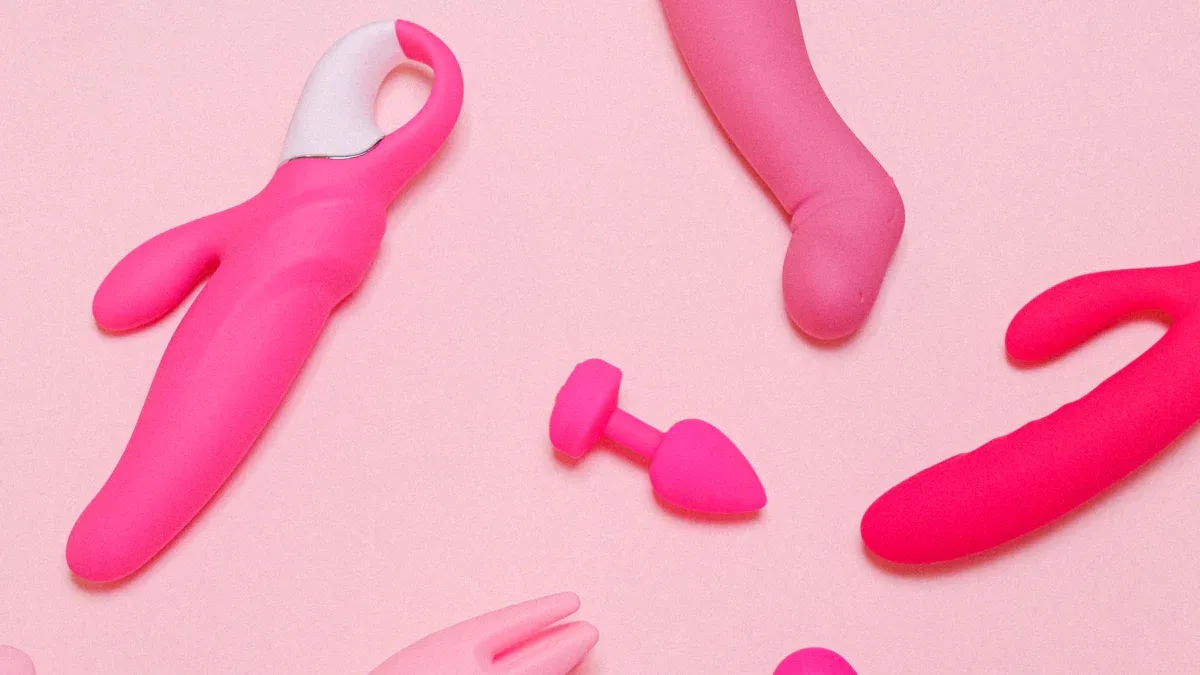Are PVC Dildos a Healthy Choice

You might wonder if PVC dildos are safe for your health. Many people choose a clear dildo made from PVC because of its transparent look. Some even come in fun and unique shapes like Double Sided Dildos and Elephant Dildos. However, these toys often contain chemicals that could be harmful.
Phthalates found in PVC dildos can lead to hormone issues and may cause difficulties with fertility.
The porous nature of the material can trap bacteria, making it challenging to keep your dildo clean and safe.
When PVC breaks down, it might cause skin irritation or rashes.
For a safe and enjoyable experience, it’s important to pick a safe dildo that helps you avoid these risks and feel your best.
PVC Dildos
What Is PVC
You might notice many sex toys say they are made of PVC. PVC means polyvinyl chloride. It is a kind of plastic that starts out stiff and hard. To make it soft for pvc dildos, companies add chemicals called plasticizers. The most common plasticizers are phthalates. These chemicals help pvc sex toys bend and feel smooth. But phthalates can come out of the toy and get into your body. Health experts say phthalates can cause hormone problems and other health issues.
PVC sex toys have more than just pvc and phthalates. Other chemicals like trimethyltin chloride, phenol, carbon disulfide, toluene, and cadmium can also be in them. These chemicals can hurt your skin, make it hard to breathe, or even damage your organs. You usually will not see these chemicals listed on the box. Most pvc sex toys are made in factories that are not checked often, so you do not always know what is inside your dildo.
Note: PVC is porous. This means germs and viruses can get inside the toy and stay there, even after you clean it. This makes pvc dildos risky for your health.
Why PVC Is Used
You may wonder why so many companies use pvc for sex toys. The reason is simple: it is cheap and flexible. PVC does not cost much to make and is easy to shape. This lets companies make many different dildo shapes, sizes, and textures. Pvc sex toys can look fun and feel soft, so people who want to save money often buy them.
Here is a table that shows some common chemicals in pvc sex toys and their risks:
Additive | Why It’s Used | Health Concerns |
|---|---|---|
Phthalates | Makes pvc flexible and soft | Hormone disruption, fertility issues |
Trimethyltin Chloride | Stabilizes pvc | Neurological and reproductive toxicity |
Phenol | May be a contaminant or additive | Skin and organ damage |
Carbon Disulfide | Used in rubber production | Nervous and reproductive system harm |
Toluene | Solvent | Harmful to nerves and organs |
Cadmium | Heavy metal additive | Kidney and bone damage |
Even though pvc dildos do not cost much, they have big problems. PVC is hard to clean because it is porous, and the chemicals inside can hurt your health. Health experts say it is better to pick safer materials for your dildo.
Health Risks of PVC
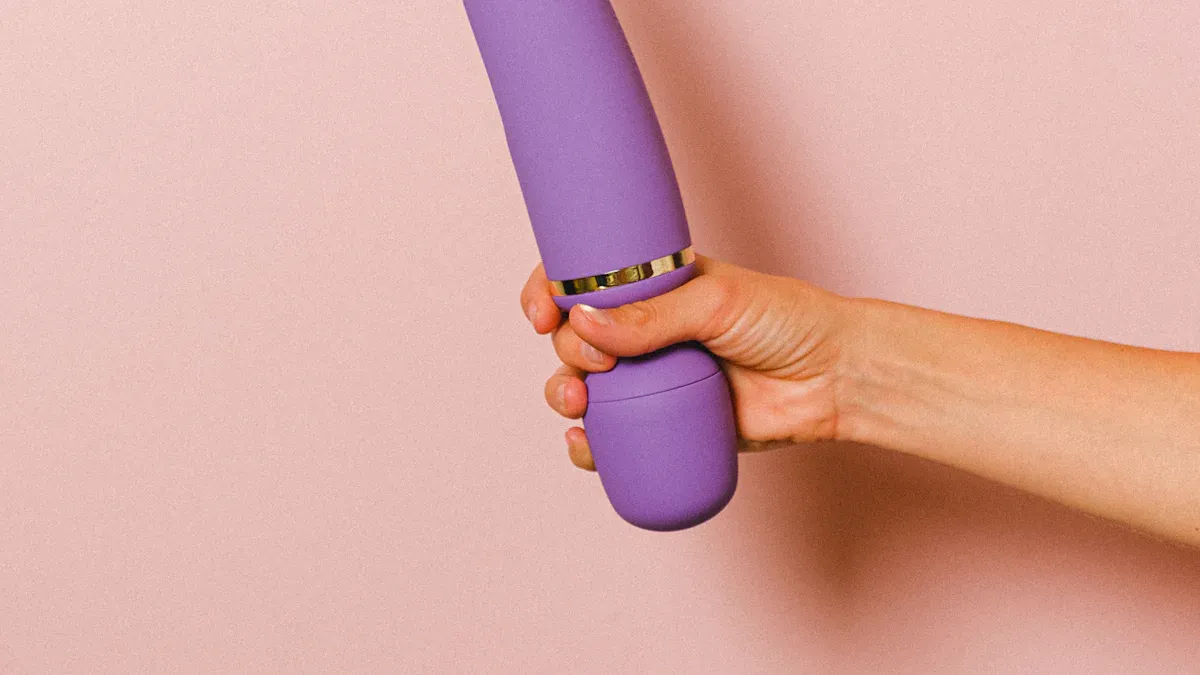
Chemical Exposure
Using pvc dildos can put your body at risk. Many pvc sex toys have phthalates. These are chemicals that make the toy soft and bendy. But phthalates can be bad for your health. Studies show phthalates can mess up your hormones. They might cause problems having babies, low sperm, or even cancer. Animal tests show phthalates can hurt testicles and ovaries. They can also change sperm DNA. Some pvc sex toys let out microplastics and phthalates when you use them. Your body can take in these chemicals through sensitive skin. Even if a toy says “phthalate-free,” it might still have phthalates. You cannot always trust what the label says.
The European Union does not allow phthalates in soft pvc toys for kids. This is because of health risks. But many sex toys still have too many phthalates. In the U.S., companies do not have to warn you about these chemicals. You might not know which toys to avoid.
Some pvc sex toys smell like plastic or feel oily. This means the toy is letting out chemicals. These chemicals can bother your skin or cause allergies. Some people get rashes, burning, or asthma after using pvc dildos. These problems show why safety is important when picking a dildo.
Porosity and Bacterial Risks
Porosity is a big problem with pvc sex toys. Soft pvc has tiny holes you cannot see. These holes trap germs, viruses, and fungi. This makes cleaning very hard. Even if you wash your dildo, germs can hide inside. This can cause infections like yeast infections or diseases.
Soft pvc dildos have holes and cannot be fully cleaned.
Germs can stay inside the toy after washing.
Using condoms with pvc dildos helps keep things cleaner. This is extra important if you share toys or switch between anal and vaginal use.
Never use the same porous toy for both anal and vaginal play. This can spread germs.
Good cleaning helps, but it cannot make a porous pvc dildo safe. Doctors say to keep these toys in their own bags. This helps stop germs from spreading. Do not use silicone or oil-based lube with pvc. These can break down the toy and make it less safe.
Degradation and Color Changes
Pvc sex toys can change color or look cloudy over time. This means the toy is breaking down. When this happens, the toy lets out more chemicals. It also gets more holes. You might see the toy feels sticky, sweats oil, or smells bad. These are signs the toy is not safe anymore.
Color changes mean the pvc is breaking down.
Broken toys let out more harmful chemicals.
Sticky or oily toys are not safe to use.
If you see these changes, stop using the toy right away. Using a broken pvc dildo can make you sick or cause infections.
Health experts say not to use pvc dildos or unsafe toys. They say to pick non-porous, body-safe toys like silicone, glass, or stainless steel. These are easier to clean and do not have the same health risks.
You can stay healthy by learning which toy materials to avoid. Always pick safe toys. Remember, safety and cleanliness are most important when choosing a dildo.
Safety and “Phthalate-Free” Claims
Are “Phthalate-Free” PVC Dildos Safer
You might see pvc sex toys that say “phthalate-free.” This label sounds like the toy is safe. But you should know what it really means. In the U.S., groups like the CPSC and FDA make rules for phthalates in kids’ toys and food boxes. These rules do not cover sex toys. No law checks if a pvc dildo is really phthalate-free. Companies can put this label on for marketing. It does not promise the toy is safe. You should not trust the label alone when picking a safe dildo.
Some studies show phthalates can hurt your body. They may mess up your hormones or make it hard to have kids. Because of these risks, many companies now make phthalate-free pvc sex toys. But there are no direct studies that compare phthalate-free pvc dildos to ones with phthalates. Some tests found no phthalates in some toys. But they did find other chemicals. These new chemicals, like DOTP, do not have enough safety info. Even if a dildo is phthalate-free, it might still have harmful chemicals.
Tip: Always try to find clear info about what is in your pvc dildo. If you cannot find this, it is safer to pick a different material.
Limitations of PVC Safety
Taking out phthalates does not make pvc sex toys fully safe. Many phthalate-free pvc dildos still have other chemicals. These can be lead, cadmium, or bisphenol analogs. These chemicals can hurt your body. They might cause rashes or even damage your organs. Some can hurt your nerves or harm a baby during pregnancy or breastfeeding.
Phthalate-free pvc dildos may still have:
Trimethyltin chloride
Phenol
Carbon disulfide
Toluene
Cadmium
These chemicals can cause itching, burning, or tissue damage. The “phthalate-free” label does not mean the dildo is safe from all risks.
Porosity is another big problem. All pvc sex toys, even phthalate-free ones, have tiny holes. These holes trap germs and make cleaning hard. You cannot fully clean a porous dildo. Bacteria and viruses can stay inside. This makes infection more likely. Taking out phthalates does not fix this problem. The only way to be sure your dildo is safe is to pick non-porous materials.
Remember: Dildo safety depends on both the chemicals inside and how easy it is to keep the toy clean. Phthalate-free pvc dildos still have safety limits.
Body Safe Sex Toys
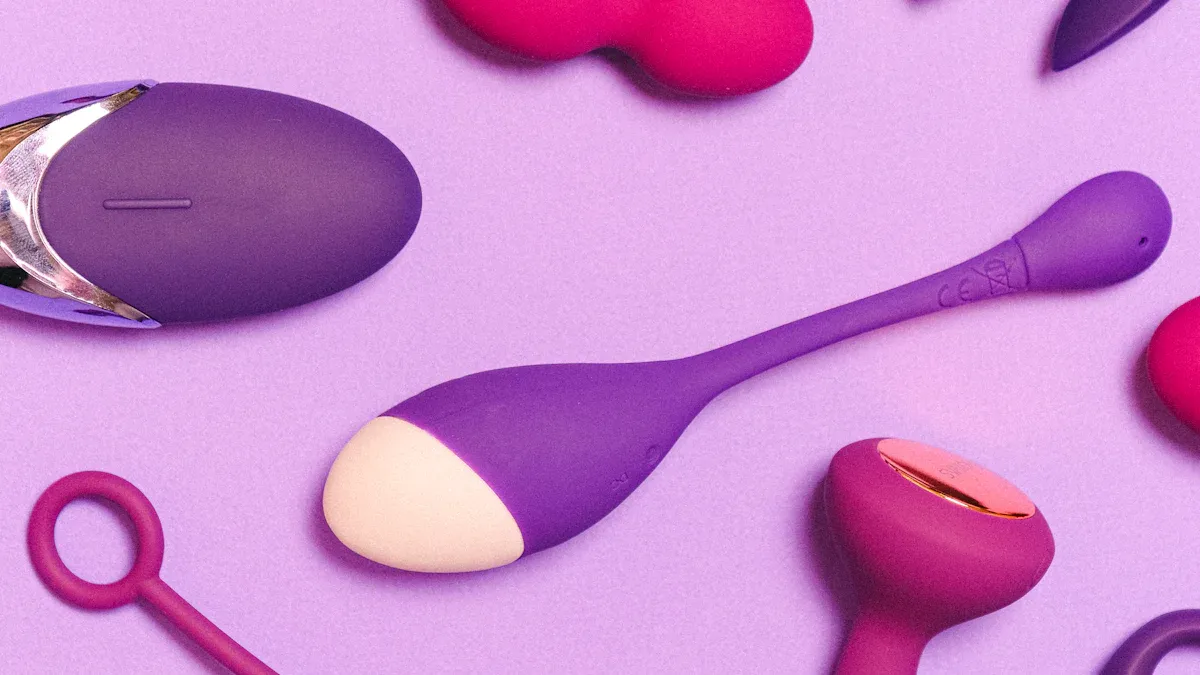
Safer Alternatives
When you want a safe dildo, pick materials that keep you healthy. PVC dildos have tiny holes. Bacteria and fungus can hide in these holes. This makes them hard to clean and not very clean. Non-porous materials like glass and metal do not have these holes. They are much easier to wash and keep clean. Silicone toys are better than PVC. They have fewer holes and are safer for your body.
Here is a table to help you compare safe alternatives to PVC sex toys:
Material | Body-Safe Materials | Cleaning Methods | Hygienic Level |
|---|---|---|---|
Medical-grade Silicone | Yes | Boiling, bleach, dishwasher | High |
Stainless Steel | Yes | Boiling, bleach, dishwasher | High |
Borosilicate Glass | Yes | Dishwasher | High |
ABS Plastic | Yes | Soap and water | High |
PVC | No | Soap and water only | Low |
Sexual health experts say these materials are best for sex toys. They do not let germs grow inside. You can clean them well and use them for a long time. Body safe sex toys may cost more than PVC. But they last longer and keep you safer.
How to Choose Body Safe Sex Toys
There are many dildos in stores, but not all are safe. Use these tips to pick safer toys:
Look for labels that say medical-grade silicone, stainless steel, or glass.
Do not buy dildos made from PVC, jelly, rubber, or vinyl.
Check for safety marks like CE, ASTM F963, or ISO 3533:2021.
Make sure the toy has clear cleaning steps.
Read reviews from trusted people to learn about safety.
Pick waterproof toys so you can clean them easily.
If you use porous toys, put a condom on them. Never share them or use them for both anal and vaginal play without cleaning.
If you have a PVC dildo, wash it well with warm water and soap after each use. Always use a condom on it to lower your risk. Do not share it with anyone else. Think about switching to safer toys like silicone, glass, or stainless steel for better hygiene and safety.
Picking body safe sex toys helps you have fun and stay healthy. You should have safe, clean, and long-lasting toys.
You deserve a dildo that is safe to use and easy to clean. PVC dildos can let harmful chemicals and bacteria into your body. Non-porous dildos give you better protection. Here is why you should choose non-porous over PVC:
Non-porous dildos do not trap germs or leak chemicals.
You can boil or wash these dildos for full cleaning.
PVC dildos may break down, smell, or cause irritation.
Pick a dildo made from silicone, glass, or metal. You protect your health and enjoy peace of mind.

